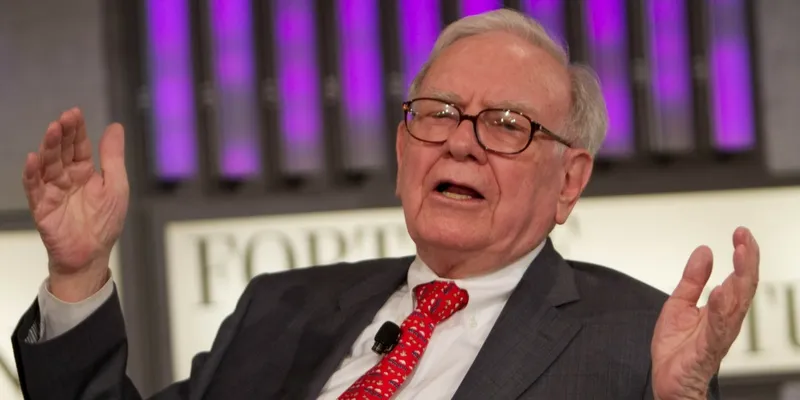Things you can learn from Warren Buffett’s Annual Letter to Berkshire Hathaway shareholders
The annual letter from Warren Buffett to the shareholders of Berkshire Hathaway, the Omaha-headquartered American multinational conglomerate and holding company, was about the profitability of the company, about acquisitions, future plans, and the 15 common stock investments that at the end of the year had the largest market value.
Warren also explained how Berkshire Hathaway’s net worth jump of $65 billion was because of tax proceeds. The company received a tax boost of $29 billion from the recent tax cuts by the US Congress. The new tax rules reduced corporate taxes to 21 percent from 35 percent, giving US companies like Berkshire Hathaway significant gains.

Image: Flickr
He also mentioned that for the first time in 14 years, the company’s insurance/underwriting business took a $3 billion hit. Referring to the company's insurance business as “the engine that for 51 years has powered Berkshire’s growth”, Warren noted that the three hurricanes Irma, Maria, and Harvey did considerable damage to infrastructure and subsequently the company’s business.
Warren also highlighted elements the company looks for in stand-alone businesses. Some of the key qualities that the letter lists for new stand-alone businesses include “durable competitive strengths, able and high-grade management, good returns on the net tangible assets required to operate the business, opportunities for internal growth at attractive returns, and, finally, a sensible purchase price.”
A sensible purchase price proved to be a barrier in 2017, as prices for average, but “far from spectacular” businesses hit an all-time high and led to Berkshire’s recent drought in acquisitions. Despite the drought, Warren was clear that he and Vice Chairman Charlie Munger would continue to follow the simple guideline: “The less the prudence with which others conduct their affairs, the greater the prudence with which we must conduct our own.”
In the letter, Warren also shows his preference for short-term US bonds over stocks. He writes, “As an investor’s investment horizon lengthens, however, a diversified portfolio of US equities becomes progressively less risky than bonds, assuming that the stocks are purchased at a sensible multiple of earnings relative to then-prevailing interest rates.”
The letter also welcomes Ajit Jain and Greg Abel, elected by the Berkshire board as Directors of Berkshire Hathaway. Warren writes, “Ajit is now responsible for insurance operations, and Greg oversees the rest of our businesses. Charlie and I will focus on investments and capital allocation. You and I are lucky to have Ajit and Greg working for us. Each has been with Berkshire for decades, and Berkshire’s blood flows through their veins. The character of each man matches his talents.”
Through the letter, he also talks about people who are crucial to Berkshire. Vice Chairman Charlie Munger finds mention multiple times and so does the team. Before Warren signs off, he applauds the efforts of the Berkshire Hathaway team, mentioning how it does so much more beyond Berkshire: “Their efforts go beyond activities strictly related to Berkshire: Last year, for example, they dealt with the 40 universities (selected from 200 applicants) who sent students to Omaha for a Q&A day with me. They also handle all kinds of requests that I receive, arrange my travel, and even get me hamburgers and French fries (smothered in Heinz ketchup, of course) for lunch. In addition, they cheerfully pitch in to help at the annual meeting in whatever way they are needed. They are proud to work for Berkshire, and I am proud of them.”
The 16-page letter is definitely worth a read, especially for investors looking for some sound advice from the great man himself. Though its takeaways may not be very useful for markets outside the US, the letter nevertheless gives a good view of what Warren thinks of the US markets and the core that Berkshire continues to focus on: sizable stand-alone acquisitions, bolt-on acquisitions that fit with businesses it already owns, internal sales growth and margin improvement at its many and varied businesses, and investment earnings from its huge portfolio of stocks and bonds.







